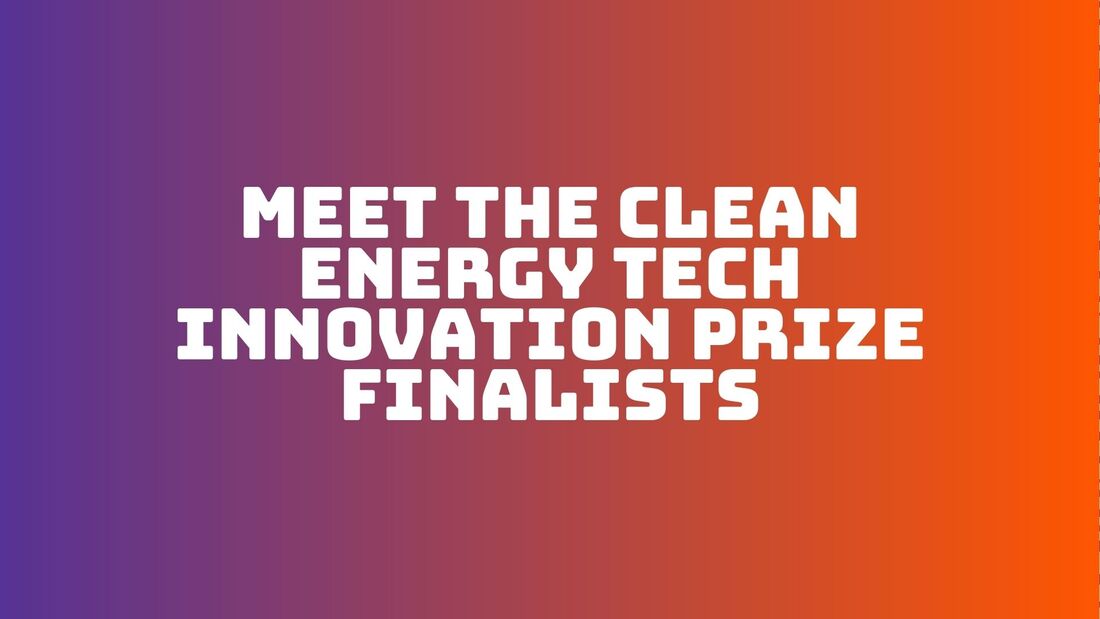|
Over the last few months, AfriTech XYZ has been working with Lion’s Head Global Partners to highlight and support some of the most innovative early-stage clean energy startups coming out of Sub-Saharan Africa. The aim of this partnership is to assist Africa’s clean energy tech entrepreneurs in achieving their full potential. Empowering diverse perspectives to contribute to the international discussion such as Net Zero and Extinction Rebellion, and to spotlight the development of globally relevant innovative technology from African startups. We are excited to announce our 2021 finalists for the Clean Energy Tech Innovation Prize. It was a tough process to whittle down the applicants for the prize, with a large number of quality applications put forth. All deserve an incredible amount of support and praise, but for the judging panel, the following three start-ups stood above the rest. It is now time for you to vote for the clean energy tech solution that will win the £1000 cash prize. Clean Energy Tech Innovation Prize finalists: Powerbox Energy Systems (Nigeria) Powerbox Energy Systems is a renewable energy startup that manufactures affordable solar power systems with 80 per cent local content, particularly designed for residential and commercial purposes. The product targets low and middle-income earners that largely depend on the use of petrol generators or kerosene lamps to meet their energy demands, due to a lack of reliable and consistent access to electricity from the national grid. The company believes that they can scale their clean energy tech innovation because of the product's focus on locally sourcing materials that are readily available. The required labour for scaling is also available, as scaling their product across Africa is not limited by significant technical or design challenges. Additionally, their tools and manufacturing processes are built to be efficient and are designed with scalability for the mass-market in mind. The biggest risk to their sector is the high cost of power within the power industry, as the cost of access to grid power is high and causes huge problems. The lack of consistent access to grid power, especially in low and middle-income homes is also a problem. Powerbox Energy Systems solution directly solves both challenges by providing their customers with an affordable, cost-effective alternative, and the possibility of having unfettered access to clean energy on-demand. Read their presentation here to learn more. SALUBATA (Nigeria) Salubata occupies a niche space, recycling low-cost plastic shoes whilst turning a profit, and also benefiting people and the planet. This is referred to as a ‘closed-loop technology’ for sequestering carbon in shoes. The team is composed of individuals with complementary skill sets necessary to scale their impact. They are strategically positioned for customer acquisition and growth, as they are driven by deep intellectual curiosity, hard-work, and creativity with rebellious minds and independent spirits. With maverick perspectives to old challenges, over time they have been able to out-think, out-work and out-care their peers. For them, success is a by-product and not a goal; they are a set of individuals with effective leadership skills necessary for driving humanity. With a plan to target 0.0005% of the global footwear market and create revenues of 132 million dollars per year, Salubata would be able to offset over 40 million tonnes of CO2 emissions per annum, and also contribute 6.6 million of their profits to the cause of helping women every year. Read their presentation here to learn more. Solar Freeze (Kenya) Solar Freeze is pioneering portable cold storage units powered by solar energy for rural smallholder farmers of perishable produce. Food losses amount to roughly US$310 billion in developing countries. Estimates from the UN's Food and Agriculture Organization, and the World Bank, show that up to 47 per cent of the $940 billion needed to eradicate hunger in Sub-Saharan Africa by 2050 will be required for the post-harvest system. Fruits and vegetables, dairy products and tubers have the highest loss rates of any food in developing countries. 45-50 per cent occur at post-harvest and processing levels mainly at the early stages of the food value chain, and can be traced back to constraints in harvesting techniques as well as lack of storage and cooling facilities. Temperature control is the most important factor in reducing post-harvest losses for fresh produce. The direct beneficiaries of the project include 3,000 smallholder farmers, 80 per cent of whom are women who have accessed the Solar Freeze cold storage solutions that have reduced post-harvest loss by 95 per cent. Through Solar Freeze, the smallholder farmers have been able to increase their household incomes significantly by 150 per cent as a result of effective and cheap refrigeration solutions by the project. Also, they have been able to sell produce at optimum prices as opposed to the previous situation where farmers were forced to sell produce to middlemen out of distress, fear and desperation of rot. The Solar Freeze project has also participated in mentoring and training 100 young women aged 18 to 29 years and the youth into the field of renewable energy. Through a program called ‘Each One, Teach One-Train to Earn’ where rural youth gain practical hands-on technical skills and are guided on how to operate equipment powered by renewable energy for agriculture. Read their presentation here to learn more. At AfriTech XYZ, the Innovation Prize allows us to select a small group of startups that have the potential to solve a pan-African or global problem and provide them with access to experts and opportunities that will challenge them to think bigger, build quicker and more sustainably. Through the prize, we also offer a small amount of cash to the winner to help them build out their innovative technology even further. Closing date: Wednesday 08 December 2021
Comments are closed.
|
Archives
September 2023
|


 RSS Feed
RSS Feed




